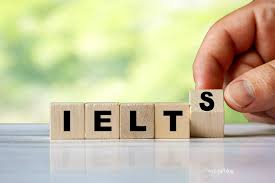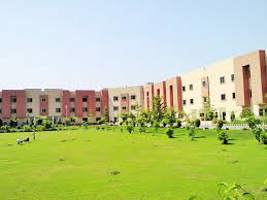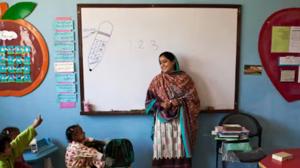At just 13 years of age, Le Tuan Minh, a bright 8th-grade student from Hanoi, has astonished many by achieving an overall band score of 8.5 in his first attempt at the International English Language Testing System (IELTS) exam. Minh, who attends True North International School, credits his success to early exposure to English, a love for reading, and a passion for technology-driven topics like programming and robotics.
Minh took the exam on March 31, scoring 8.5 in Listening, Reading, and Speaking, and 7.5 in Writing. His exceptional performance places him among the top 1% of Vietnamese test-takers in the 2023–2024 period, a statistic that typically includes candidates aged 16 to 22.
“I was really surprised, especially with my Writing score,” Minh said. “During practice, I often scored between 6 and 7. I wasn’t expecting 7.5.”

A Self-Made Challenge
Minh’s decision to take the IELTS wasn’t driven by academic pressure or parental demands but by personal ambition. He saw it as a meaningful challenge and a valuable addition to his academic record. His goal was to attain an overall score of at least 8.0 by the end of grade 8, and he began preparing seriously in 2023.
“I wanted to test my limits and see where I stood,” Minh said. “Also, I thought it would help with university applications later on.”
To prepare, Minh enrolled in a preparation course that met twice a week. He also purchased access to an online IELTS practice platform, where he consistently completed one to three practice tests per skill daily. His discipline and consistency played a significant role in building the confidence he needed for the actual exam.
“I usually study late at night after finishing school homework,” Minh shared. “It’s a quiet time when I can focus completely.”
Tackling the Writing Section
Among the four sections of the IELTS exam, Writing posed the greatest challenge for Minh. He was particularly concerned about Task 1, which often requires candidates to analyze data, describe trends, or explain processes.
Fortunately, the actual test included a Task 1 prompt Minh felt comfortable with: describing the process of using a solar-powered water pump to purify drinking water. Drawing from his interest in science and technology, he was able to explain the system clearly and effectively.
Task 2 asked him to discuss the challenges faced by middle-aged workers competing with younger employees in the workforce. Minh identified limited job opportunities as a major concern and proposed that advancements in technology, particularly artificial intelligence, could create new roles tailored to younger people. This, he argued, could help balance employment opportunities across different age groups.
His familiarity with technology-related topics helped him organize his ideas quickly. Despite some nervousness, Minh said he carefully planned his response, structured his arguments logically, and supported them with relevant examples.
Strength in Reading and Speaking
Minh excelled in the Reading and Speaking sections, scoring a flawless 8.5 in both. He found the Matching Headings task in Reading the most difficult, noting that many options seemed similar at first glance. His strategy was to focus on each paragraph’s topic sentence, supporting details, and conclusion to better understand the main idea.
“I tried to find the main point of each paragraph and then match it with the best heading,” Minh explained. “It wasn’t easy, but practicing this type of question really helped.”
In the Speaking section, Minh’s confidence was clear. Thanks to his English-speaking environment at school and regular practice at home, he was able to engage smoothly with the examiner. He attributes his fluency to both formal education and informal exposure to English in everyday life.
Early Start and Home Environment
A significant part of Minh’s English journey began at home. According to his mother, Man Thi Minh Phuong, he started watching cartoons in English when he was just three or four years old. She believed in the power of early exposure and used enjoyable content to help him absorb the language naturally.
“I believe that if a child hears a language often, they’ll start to speak it. And if they can read it, they’ll soon be able to write it too,” she said.
From grades 1 to 4, Minh studied at a local public school while attending additional English classes once a week. At home, his focus was on listening. On weekends, his mother would take him to Hoan Kiem Lake, where he practiced speaking English with foreign tourists.
Minh also developed a habit of reading extensively in English, particularly books and articles on coding and robotics—two of his favorite subjects. These interests not only enhanced his vocabulary but also improved his comprehension of complex topics, which later helped him in IELTS preparation.
Continuous Progress and Future Goals
Minh’s academic journey has been marked by determination and strategic learning. Over the years, he has taken multiple Cambridge English exams to monitor his progress and sometimes enrolled in short-term courses targeting specific skills.
By the end of primary school, Minh’s language skills and academic performance earned him scholarships to several international schools. Currently thriving at True North International School, he continues to set ambitious goals.
His next step? Retaking the IELTS next year with the aim of maintaining or even surpassing his 8.5 score.
“I want to show consistency and improvement,” Minh said. “This could be useful for future university applications, especially abroad.”
An Inspiration to Young Learners
Le Tuan Minh’s story is a testament to what young learners can achieve with the right mindset, environment, and dedication. His success highlights the benefits of early language exposure, self-driven learning, and the importance of aligning academic efforts with personal interests.
For other students looking to improve their English, Minh offers simple yet powerful advice: “Find something you love in English—whether it’s cartoons, games, or books. It makes learning much easier.”
As Minh continues his academic journey, his achievements serve as a source of inspiration not only to his peers but also to educators and parents who hope to support the next generation of global learners.

.gif)









.png)











